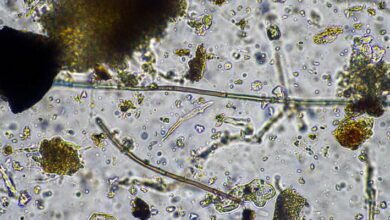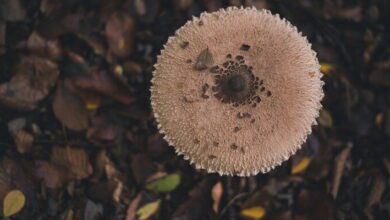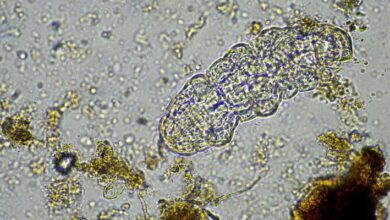Fungal Physiology MCQs with Answers

Welcome to the Fungal Physiology MCQs with Answers. In this post, we have shared Fungal Physiology Online Test for different competitive exams. Find practice Fungal Physiology Practice Questions with answers in Biology Tests exams here. Each question offers a chance to enhance your knowledge regarding Fungal Physiology.
| Fungal physiology is the science of biological functions and processes sustaining fungi. Fungi are a new class of eukaryotic organisms that have cellular structures and metabolic pathways characteristic of their own. Their physiology, therefore, is characterized by a few important characteristics, including cell walls, mannerisms of nutrient acquisition, and reproductive strategies. Fungi have in their walls of cells a polysaccharide called chitin, which lends them structural support and rigidity. This is what distinguishes fungi from other microscopic organisms such as bacteria, who have peptidoglycan composing the cell walls. Fungal cells contain organelles such as the mitochondria and the nucleus that encompasses energy production and regulation of genetic material. It is obtained through extracellular digestion by fungi. The released enzymes of the fungi break down the hard organic matter into simpler compounds absorbed by the fungi. This manner of nutrition places fungi among the saprophytes or parasites or symbiotes based upon the relationship of other organisms with the fungi. Fungi reproduce both asexually and sexually. Generally, most asexual reproduction takes place through spores. Such spores can be carried by the wind, water current, or animals. Sexual reproduction is concerned with specialized structures of the various fungal organisms for their fusion that takes place to give genetically diverse offspring. Importantly, the understanding of fungal physiology plays its role in medicine, agriculture, and biotechnology. It helps make antifungal drugs, control diseases of crops, and exploit fungi in fermentation processes as well as those in bioremediation processes. |
Fungal Physiology Online Quiz
By presenting 3 options to choose from, Fungal Physiology Quiz which cover a wide range of topics and levels of difficulty, making them adaptable to various learning objectives and preferences. You will have to read all the given answers of Fungal Physiology Questions and Answers and click over the correct answer.
- Test Name: Fungal Physiology MCQ Quiz Practice
- Type: Quiz Test
- Total Questions: 40
- Total Marks: 40
- Time: 40 minutes
Note: Answer of the questions will change randomly each time you start the test. Practice each quiz test at least 3 times if you want to secure High Marks. Once you are finished, click the View Results button. If any answer looks wrong to you in Quizzes. simply click on question and comment below that question. so that we can update the answer in the quiz section.
Download Certificate of Quiz Fungal Physiology
On the end of Quiz, you can download the certificate of the quiz if you got more than 70% marks. Add a certificate to your job application or social profile (like LinkedIn) and get more job offers.
Download Fungal Physiology MCQs with Answers Free PDF
You can also download 100 Fungal Physiology Questions with Answers free PDF from the link provided below. To Download file in PDF click on the arrow sign at the top right corner.
If you are interested to enhance your knowledge regarding English, Physics, Chemistry, Computer, and Biology please click on the link of each category, you will be redirected to dedicated website for each category.




